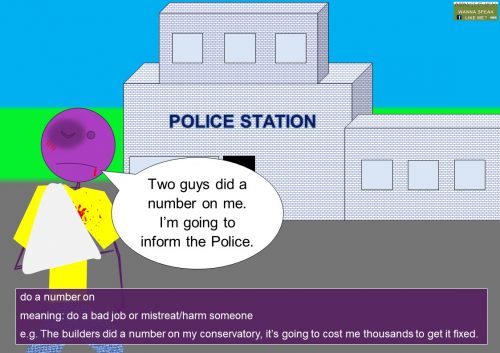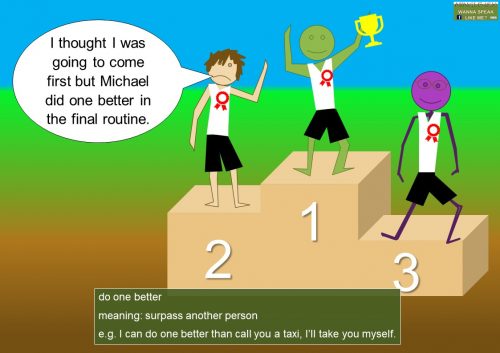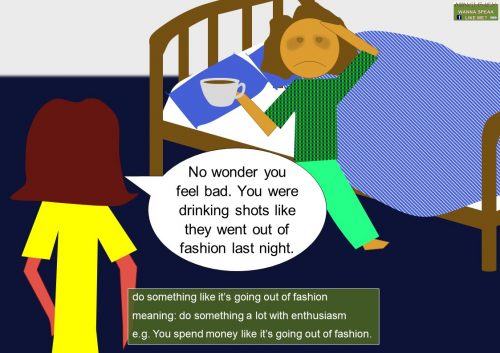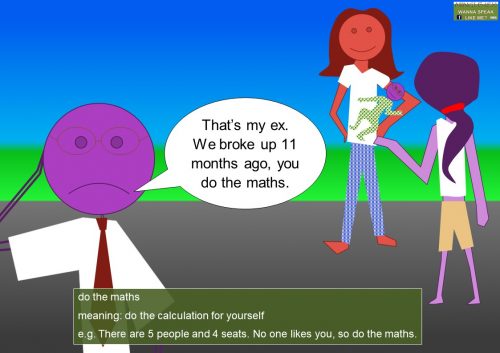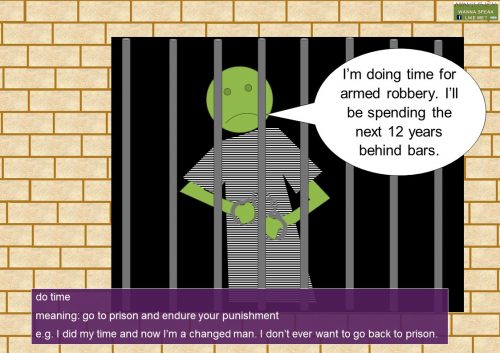The word ‘do’ can mean many different things. As a verb, some meanings include perform an action or complete something.
For example:
- I’m doing a 10 mile run tomorrow. (perform an action)
- I’ve done my homework. (complete something)
Do is an irregular verb. The past tense is did and the past participle is done.
idiomatic phrasal verbs
Did you know phrasal verbs are sometimes used in idioms? See if you can spot any. If you don’t know any phrasal verbs with ‘do’, click here to learn them.
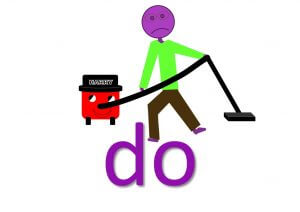
idioms list with ‘do’
- do a number on – do a bad job or mistreat/harm someone
e.g. The builders did a number on my conservatory, it’s going to cost me thousands to get it fixed. - do a roaring trade – sell lots of goods very quickly
e.g. Our cheese stall did a roaring trade at the summer fete. We sold out within two hours. - do one better – surpass another person
e.g. I can do one better than call you a taxi, I’ll take you myself. - do someone the world of good – benefit someone greatly
e.g. A spinach and kale smoothie always does me the world of good. - do something like it’s going out of fashion – do something a lot with enthusiasm
e.g. You spend money like it’s going out of fashion. - do the maths – do the calculation for yourself
e.g. There are 5 people and four seats. No one likes you, so do the maths. - do the rounds – go from one person/place to another in succession
e.g. We need a new sofa, so we’re doing the rounds today to find a new one. - do time – go to prison and endure your punishment
e,g. I did my time and now I’m a changed man. I don’t ever want to go back to prison. - till death do us part – a marriage vow meaning commitment and fidelity until the end
e.g. We vowed to be together till death do us part, but she cheated on me within 3 months.
Let’s see these idioms with pictures and meaning using real-life scenarios.
Psst…
Hey, did you know the verb ‘do’ has many phrasal verbs. Since you like idioms and phrases, you obviously want to improve your fluency and speak like a native.
Am I right?
I thought you might like to learn the phrasal verbs with ‘do’ too. They are very common in informal English and great to know/be able to understand if you happen to be speaking to a native. We use them all the time, like literally ALL the time.
